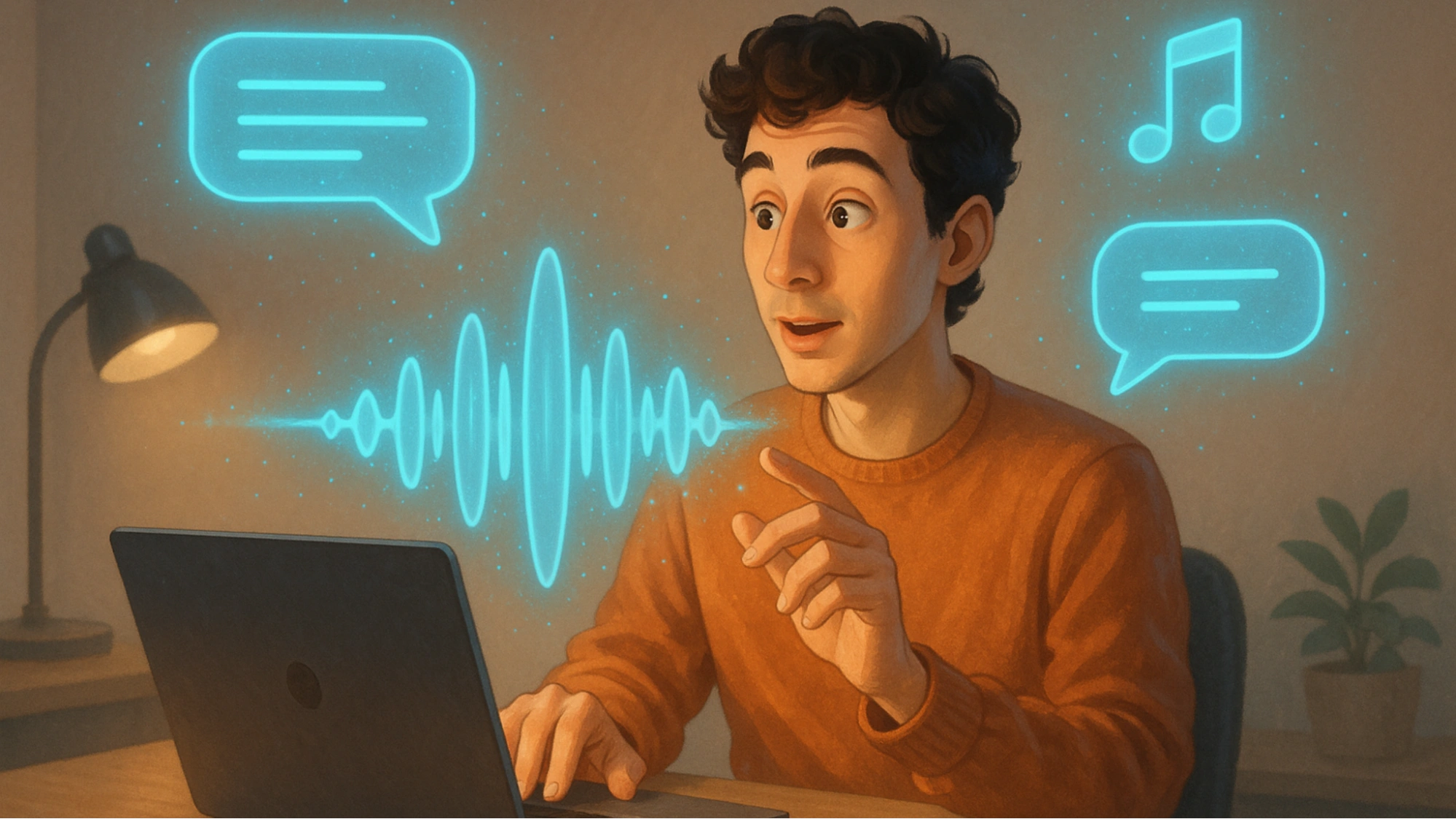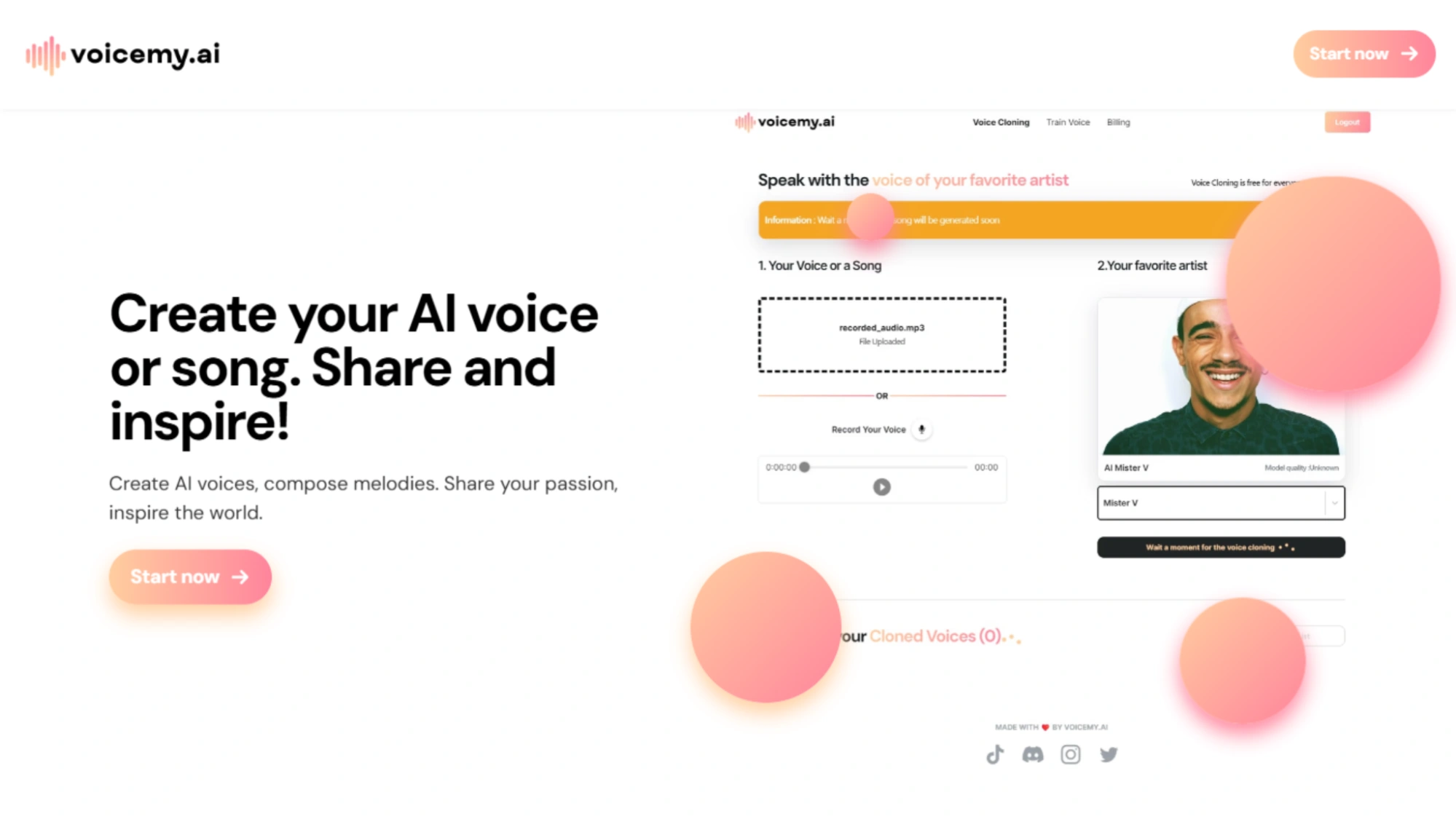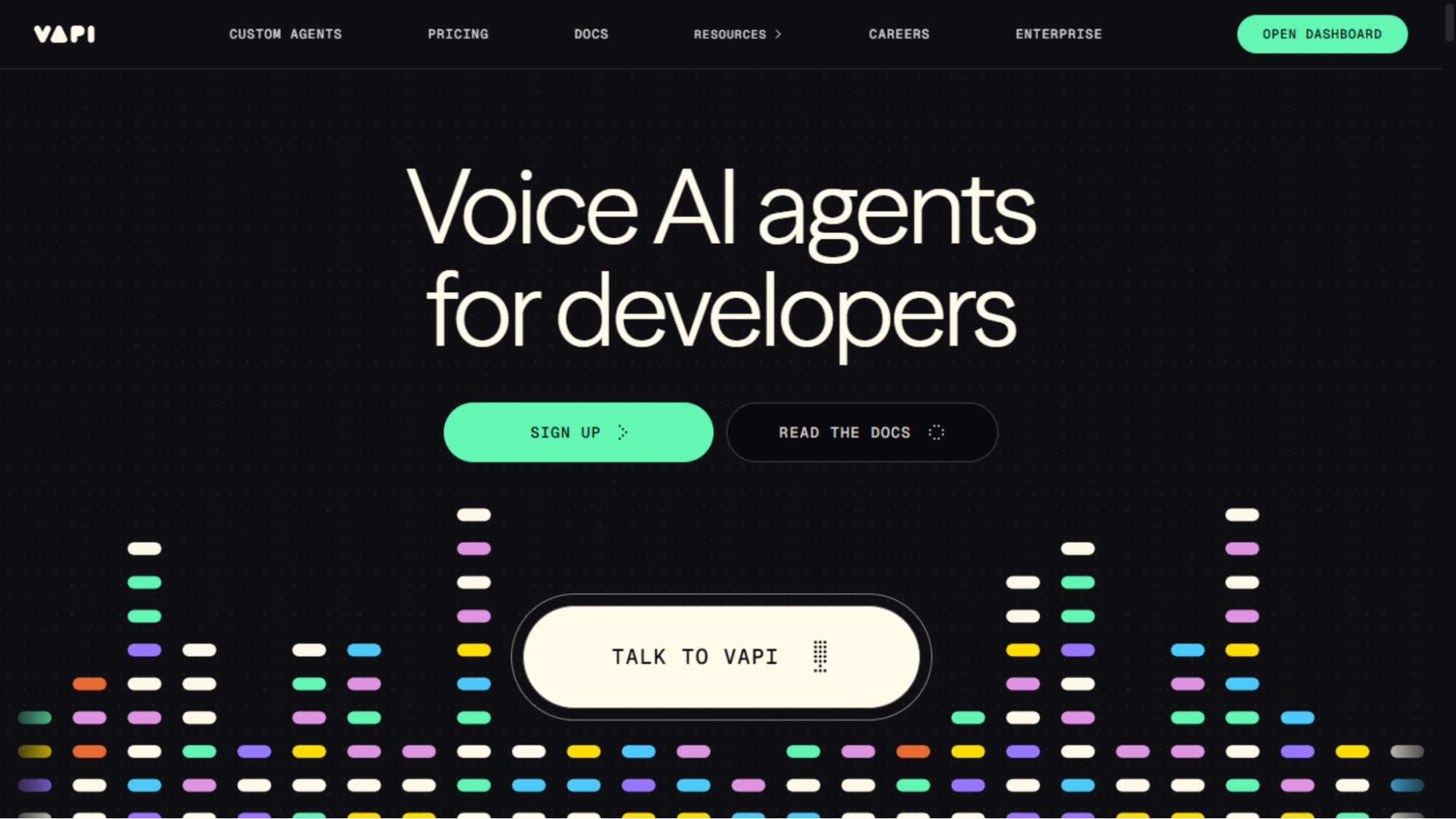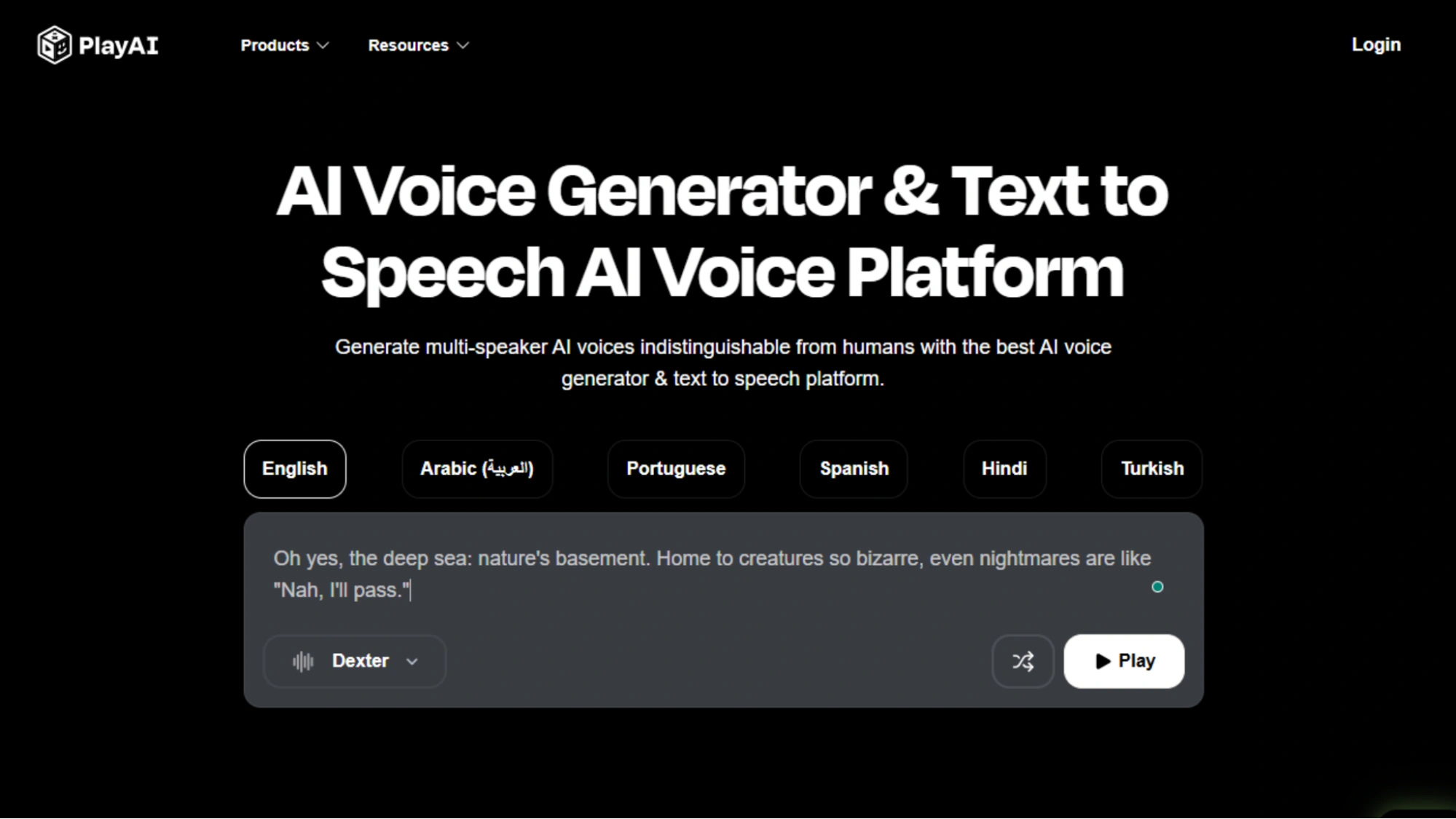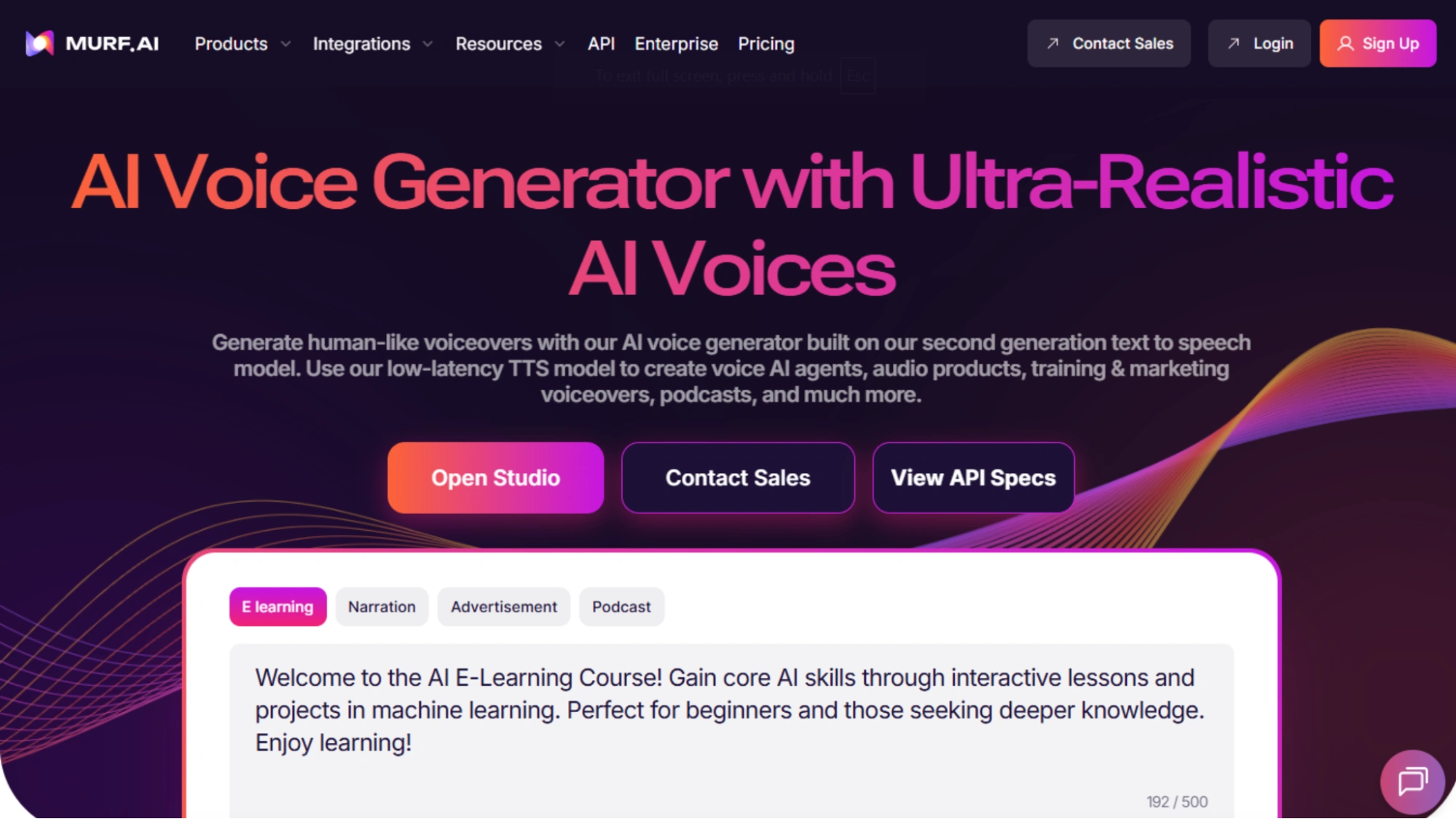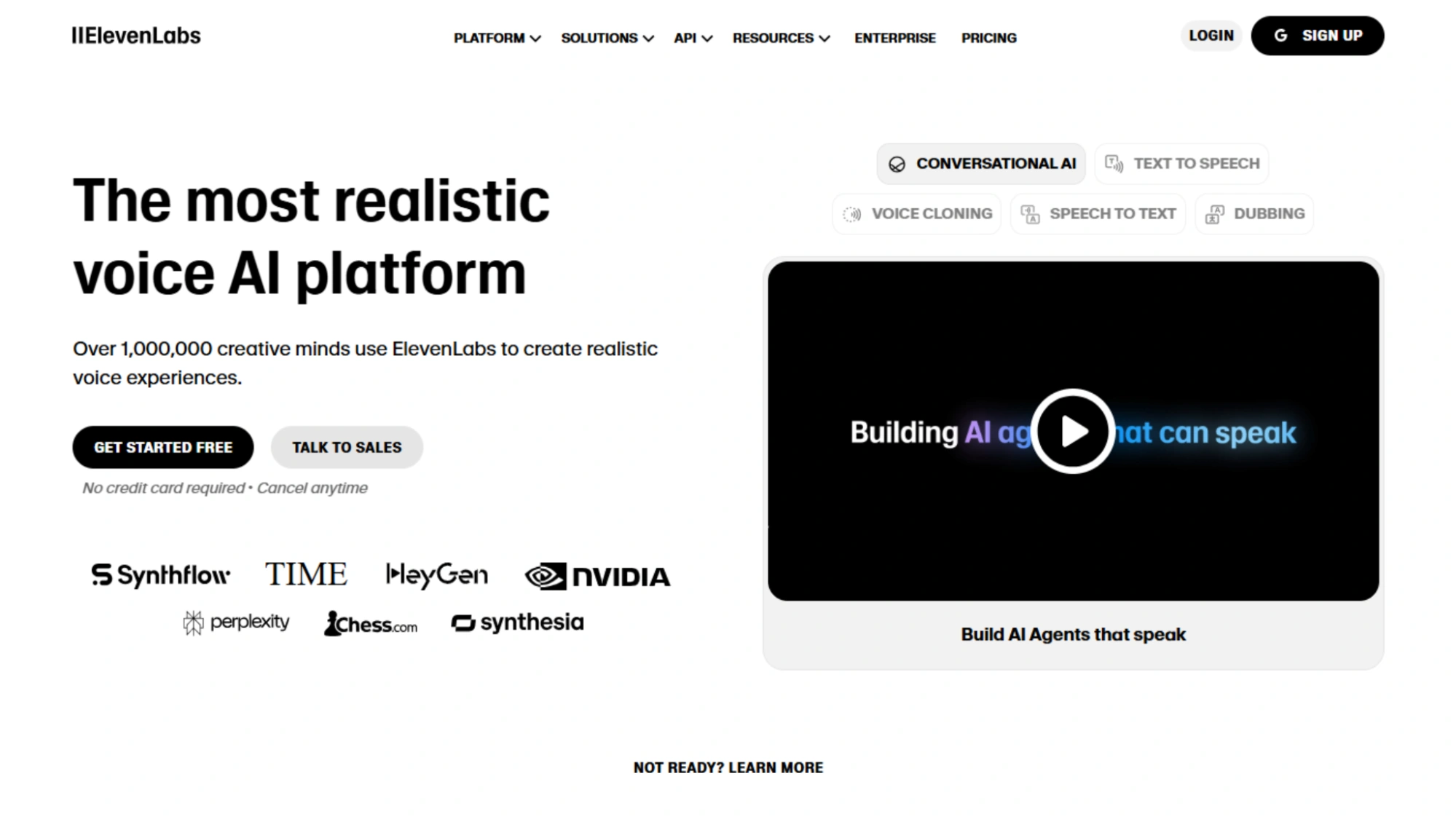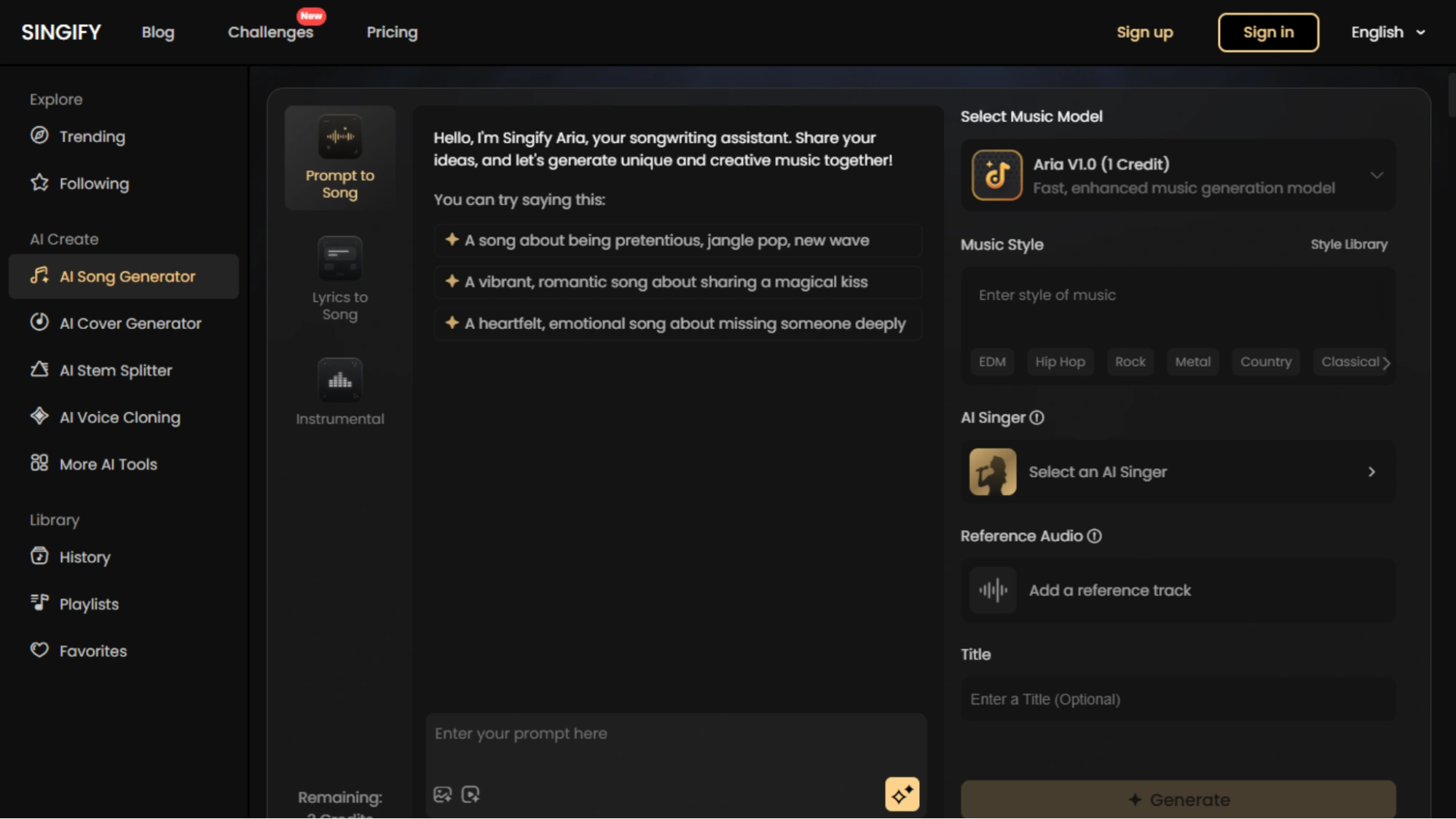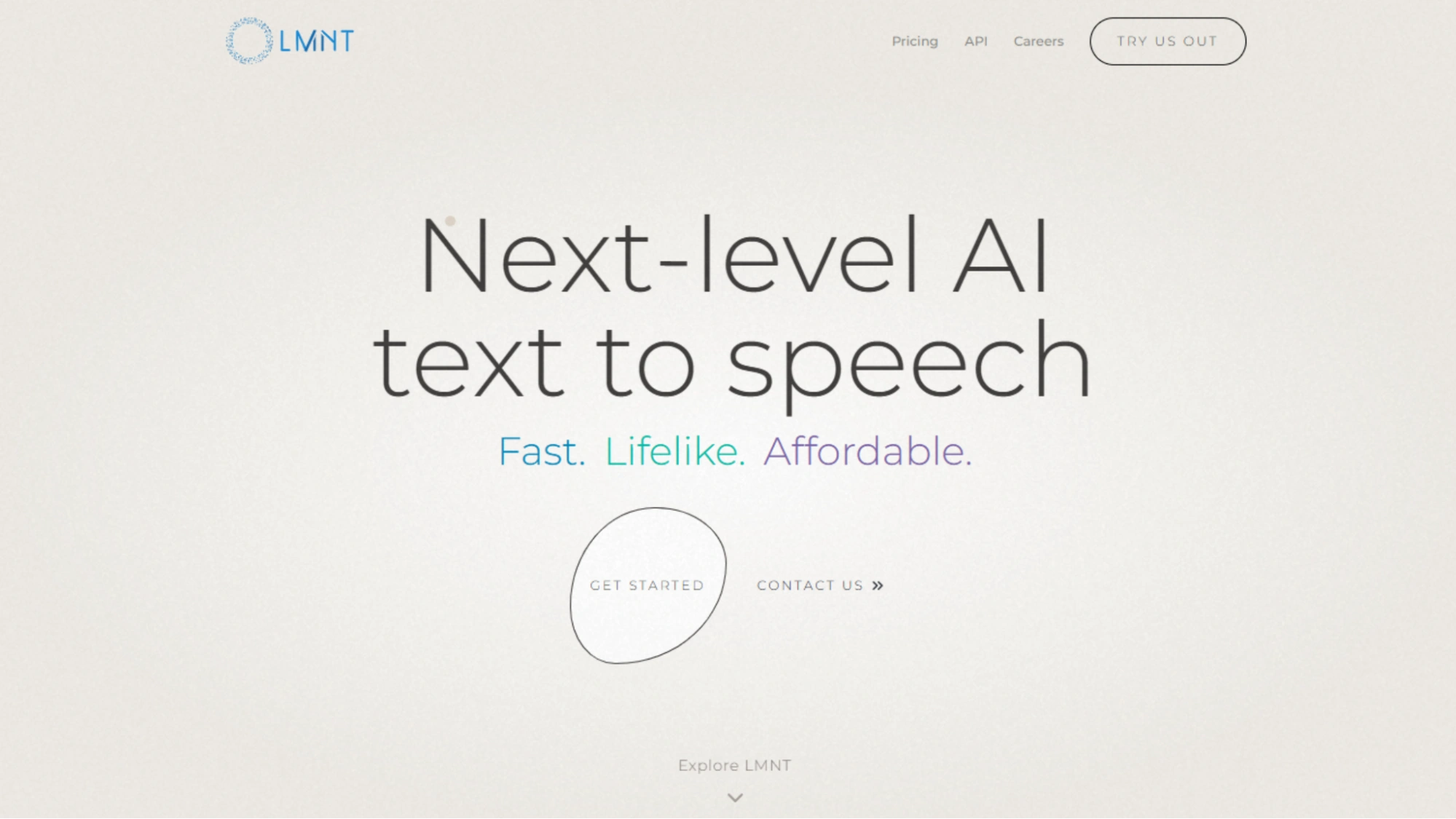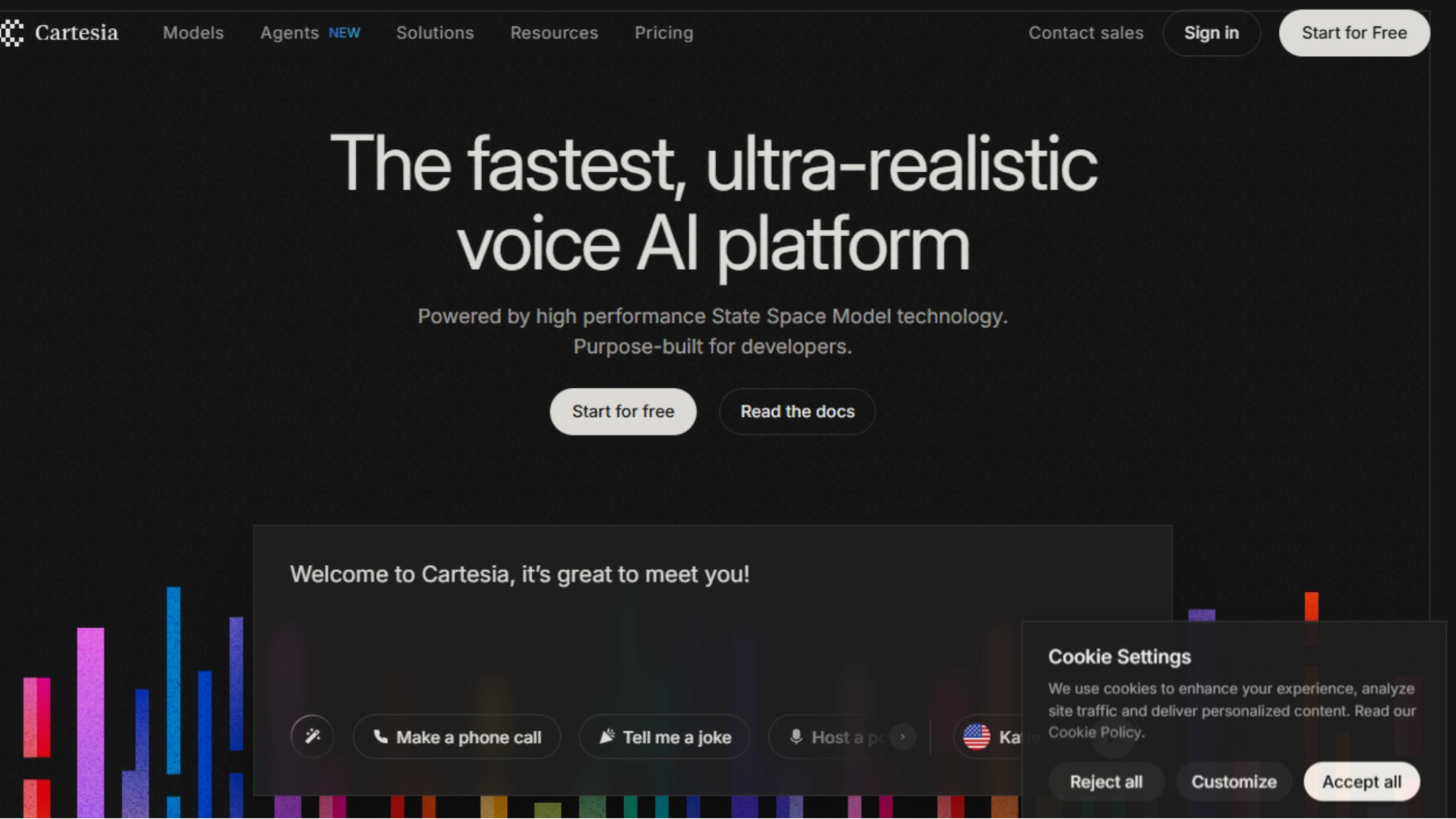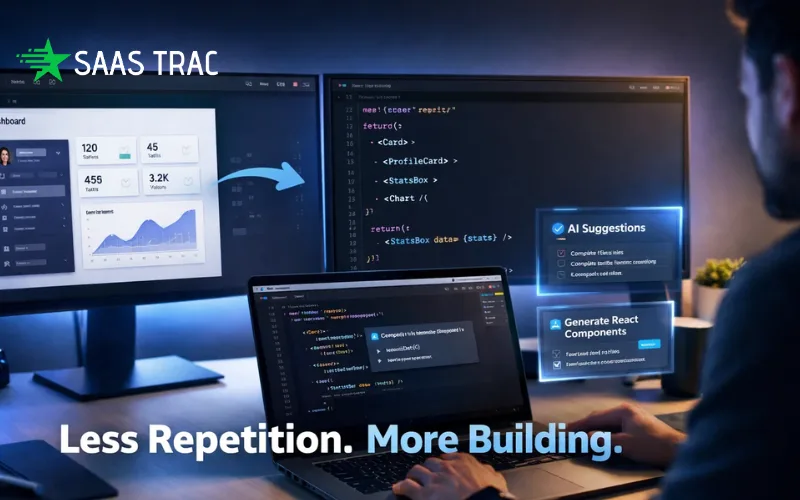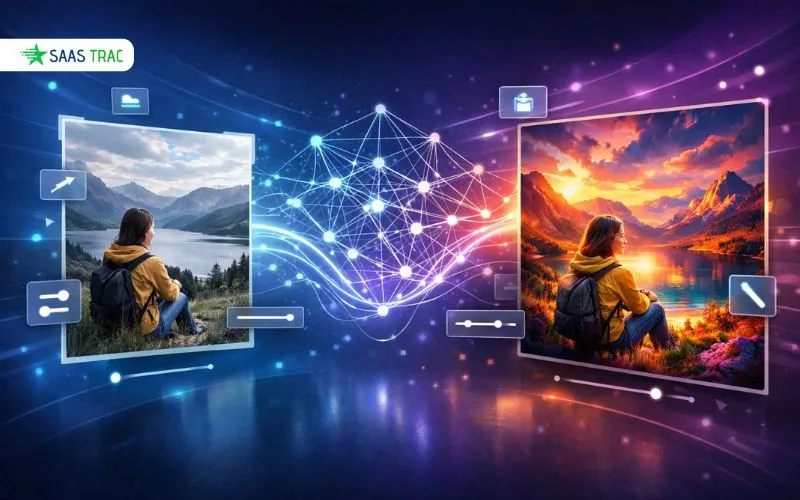Have you ever wished that your words could literally speak for you? Or maybe you want to try out someone else’s voice? You may not have heard much about voice cloning yet. It is a type of AI that can mimic a real voice so accurately that it captures not only the sound but also the tone, emotion, and personality.
Currently, voice clon is not just something that only tech experts or big studios can use. Creators are turning their stories into podcasts and audiobooks, businesses are using it to make customer support more personal, and musicians are experimenting with AI voices in their songs. What once seemed like science fiction is now at our fingertips.
And the best part? You do not need fancy equipment or advanced skills to try it. Many AI voice cloning tools are easy to use, and some even allow users to experiment for free.
In this blog, we will walk you through 10 must-have AI voice cloning tools for 2025, tools that can help you bring your projects, ideas, and stories to life in a way that sounds completely natural.
AI Voice Cloning
Have you ever wanted to give life to your words without recording them? Or perhaps experiment with a different voice just for fun? This is where free voice clon comes into play. These tools allow you to try AI voice cloning without spending a dime, making it easy for anyone to explore this technology.
With free AI voice cloning, the following can be achieved:
- Text is converted into realistic speech in minutes.
- Different voices, tones, and emotions were tested.
- Experiment with projects such as podcasts, audiobooks, or even songs.
You do not need a recording studio or professional software.
Many tools offer intuitive interfaces where all you need to do is type or upload a sample, and the AI does the rest.
It is a perfect way for beginners to explore AI voice cloners and see how powerful this technology can be.
In the next section, we will dive into the 10 essential AI voice clon tools for 2025, showing you which ones are worth trying and what makes each unique.
1. VoiceMy.AI – Beginner-Friendly AI Voice Cloning
VoiceMy.AI is known for its simplicity and speed. Unlike some complex tools, it focuses on helping users generate realistic voice content without a steep learning curve or requiring extensive training.
Key highlights:
- Offers a library of AI voices with different accents and styles.
- It allows users to clone a voice by uploading a sample.
- Quick processing allows audio production in minutes.
- It is ideal for creating voiceovers for apps, social media, and presentations.
This tool is perfect if you want an accessible, no-fuss way to explore AI voice cloning without getting bogged down in the settings or technical details.
2. KreadoAI – Voice Cloning with AI Avatars
KreadoAI takes voice cloning a step further by combining it with AI-generated video avatars. It is not just about creating audio; it allows you to bring a virtual persona to life that can speak in your chosen voice.
Key highlights:
- Create AI avatars that converse using your cloned voice.
- Expressions and lip-syncing for realistic animations were customized.
- It is perfect for social media videos, marketing content, and virtual presentations.
- Supports multiple languages and voice styles for a global reach.
KreadoAI is ideal if you want your cloned voice to have a visual presence, making your content more engaging and interactive.
3. Vapi.AI – AI Voice Agent for Interactive Experiences
Vapi.AI isn’t just a voice cloning tool—it’s designed to create AI voice agents that can interact in real time. This makes it perfect for applications, chatbots, and other digital experiences where a human-like voice adds a personal touch.
Key highlights:
- AI voice agents that respond naturally to users should be built.
- Can be integrated with apps, websites, or customer service platforms.
- Offers voice cloning to create unique brand voices.
- It supports multiple languages and dynamic responses.
Vapi.AI is best for those looking to add conversational AI voices to their projects rather than just generating static audio clips.
Also Read!
The Best AI Business Tools To Try Today
How AI In Software Testing Is Transforming Quality Assurance
4. Cover.AI – AI Voice Cloning for Music and Covers
Cover.AI is tailored for musicians and creators who want to experiment with AI-generated singing. Instead of just speaking, it allows you to recreate melodies and vocal performances with a cloned voice.
Key highlights:
- Clone singing voices to produce cover songs or original music using AI.
- The pitch, tone, and style can be adjusted to match different genres.
- This is useful for music creators, hobbyists, and content creators exploring audio innovation.
- Fast processing facilitates the rapid testing of different ideas.
Cover.AI is ideal if your focus is on music and creative projects, offering a unique way to blend AI with artistic expression.
5. Play.ht – AI Voice Cloner for Professional Audio
Play.ht is designed for creators who require high-quality, realistic voiceovers for professional projects. It is widely used for podcasts, audiobooks, e-learning, and other content where clear, natural-sounding speech is important.
Key highlights:
- It offers a large library of lifelike AI voices.
- Supports cloning for personalized narration.
- An easy-to-use editor for fine-tuning tone, speed, and style.
- It provides commercial licensing for professional use.
Play.ht is ideal for anyone producing professional audio content and looking for a reliable and realistic AI voice solution.
6. Murf.AI – Studio-Quality AI Voice Cloning
Murf.AI focuses on delivering high-quality, studio-like voiceovers that are ideal for professional content creation. It is especially popular for corporate videos, training materials, and presentations.
Key highlights:
- Clone voices with a natural tone and clear pronunciation.
- It offers advanced editing tools to adjust pitch, pace, and emphasis.
- Supports multiple languages and accents for global projects.
- It is perfect for e-learning, business presentations, and marketing videos.
Murf.AI is a go-to choice if polished, professional-grade AI voice content is required without a studio recording.
7. ElevenLabs – Realistic AI Voice Cloner for Professionals
ElevenLabs is known for producing some of the most natural and expressive AI voices. It is used by creators, media professionals, and storytellers who need ultra-realistic speech.
Key highlights:
- Clones voices with lifelike emotions and nuances.
- It supports both text-to-speech and voice cloning.
- Offers customization of tone, style, and pacing.
- Ideal for audiobooks, podcasts, videos, and other media projects.
ElevenLabs is perfect if you want a highly realistic voice that can convincingly convey emotions, making your content sound professional and engaging.
8. Singify – AI Voice Cloning for Singing
Singify was designed specifically for music creators who want to experiment with AI-generated singing voices. It allows you to bring melodies to life without recording vocals.
Key highlights:
- Singing voices are cloned for cover songs or original compositions.
- The pitch, tone, and style can be adjusted to match different music genres.
- This is great for hobbyists, musicians, and content creators exploring AI in music.
- Quick processing facilitates the exploration of new ideas and sounds.
Singify is perfect for creative music projects, offering a fun way to explore AI voice cloning in the singing space.
9. LMNT– AI Voice Cloning for Unique Projects
This tool helps users create realistic and customizable AI voices for various purposes. Whether for content creation, marketing, or personal projects, it offers flexibility and ease of use.
Key highlights:
- Clone voices with a natural tone and emotion.
- Supports multiple languages and voice styles.
- This is ideal for digital content, podcasts, or interactive media.
- User-friendly interface for rapid results.
Once you confirm the correct tool, I will replace this section with a detailed and accurate description.
10. Cartesia.AI – Advanced AI Voice Cloning with Emotional Range
Cartesia.AI focuses on producing expressive, human-like voices that convey emotions and personality. It is designed for projects where the tone and nuance of speech matter.
Key highlights:
- Clone voices with natural inflections and emotional depth.
- The tone, pace, and style can be customized for different scenarios.
- It is ideal for gaming, films, audiobooks, and customer support.
- It supports multiple languages and produces highly realistic outputs.
Cartesia.AI is ideal if you want AI voice content that feels authentic and engaging, making your projects sound polished and professional.
The Future Of Voice Cloning In 2025
Voice cloning is no longer a futuristic concept; it is already changing how we create and consume audio. In 2025, we can expect even more advanced tools that make cloned voices sound indistinguishable from real voices.
Key trends to watch:
- Hyper-personalized voices: AI will allow users to create custom voices for themselves, brands, or characters.
- Greater accessibility: Voice cloning makes audiobooks, podcasts, and learning materials more inclusive by supporting multiple languages and speech patterns.
- Integration with AI avatars and virtual assistants: Tools such as KreadoAI and Vapi.AI show how cloned voices can interact in real time.
- Ethical considerations: As cloning becomes widespread, concerns regarding consent and deepfake misuse are growing. Responsible use of these tools is critical.
The future of AI voice clon lies in blending creativity, personalization, and technology to produce content that feels natural, expressive, and engaging.
Conclusion: Choosing The Right AI Voice Cloning Tool for You
AI voice cloning is no longer limited to tech experts or large studios. With the right tools, anyone can create realistic, expressive, and professional audio.
To recap:
- For beginners or casual experimentation, VoiceMy.AI and Play.ht are easy to use.
- For professional projects such as podcasts, e-learning, or corporate videos, Murf.AI, ElevenLabs, and Cartesia.AI offer studio-quality results.
- For music or creative projects, Cover.AI and Singify allow you to explore singing voices and artistic experimentation.
- For interactive or animated content, KreadoAI and Vapi.AI bring voices to life in digital experiences.
Choosing the appropriate tool depends on the goals, project type, and experience level. With these 10 AI voice cloning tools, you can bring your ideas, stories, and content to life in a way that sounds completely natural—and perhaps even better than you imagined.
FAQs: AI Voice Cloning in 2025
How long does it take to clone a voice?
Most AI voice cloning tools can create a cloned voice in a few minutes, depending on the length of the sample and the processing speed of the platform. Some advanced tools may take slightly longer to produce high-quality output.
Can AI voice cloning be used commercially?
However, this depends on the tool’s licensing terms. Some platforms, such as Play.ht and Murf.AI, include commercial licenses, whereas others may restrict use to personal projects only. Always check the terms before using cloned voices for business purposes.
Is voice cloning safe?
The use of reputable platforms is generally safe. Avoid uploading sensitive personal data or other people’s voices without their consent. Although most tools provide secure processing, ethical use is important.
Do I need a high-end computer to use AI voice cloners?
No. Most AI voice cloning tools are cloud-based, so only a stable Internet connection and a web browser are required. Heavy processing is handled on the platform’s servers.
Can AI voice cloning capture accents and emotions?
Y?es. Many tools allow users to adjust the tone, pitch, and pacing to replicate accents or convey different emotions. Some advanced platforms, such as ElevenLabs and Cartesia.AI, are particularly good at capturing subtle nuances.



